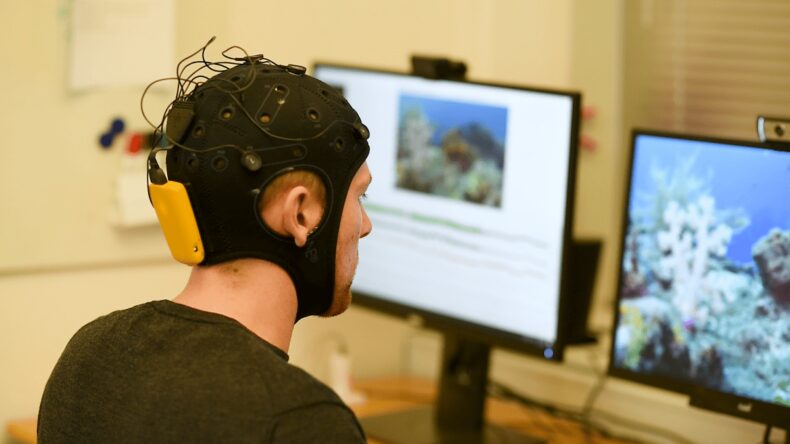New AI technology could revolutionize brain-computer interfaces.

Researchers at the University of Helsinki have developed an artificial intelligence (AI) model that can read human thoughts by analyzing brain signals. The new technology could have a significant impact on the development of brain-computer interfaces (BCIs), which allow people to control machines using their thoughts.
The study, published in the journal Scientific Reports, used a machine learning algorithm similar to ChatGPT to analyze electroencephalography (EEG) data from the brains of human participants. The researchers found that the AI model was able to decode human thoughts with an accuracy of up to 83%.
Revolutionizing Brain-Computer Interfaces

BCIs have the potential to transform our interactions with machines. They allow people with physical disabilities to control prosthetic limbs or communicate using assistive devices. However, current BCIs are limited by their ability to accurately interpret human thoughts.
The new AI model developed by the University of Helsinki could significantly improve the accuracy of BCIs. By analyzing brain signals, the AI model can identify patterns that correspond to specific thoughts, allowing for more precise control of machines using thoughts.
The study’s lead author, Tuukka Ruotsalo, said, “Our method allows us to decode thoughts in a more natural way than previous methods used in BCIs, which are based on simplistic assumptions about how the brain works.”
Potential Applications
The new AI technology has a wide range of potential applications beyond BCIs. It could be used to develop more advanced brain-controlled interfaces for gaming, virtual reality, and even driving. It could also be used to improve the accuracy of brain-based lie detection or to help diagnose and treat neurological disorders.

The researchers caution that there are still many challenges to be overcome before this technology can be used in real-world applications. For example, the AI model currently requires participants to be connected to EEG sensors, which can be invasive and uncomfortable. The researchers are exploring ways to make the technology less invasive, such as using non-invasive brain imaging techniques like functional magnetic resonance imaging (fMRI).
Ethical Considerations

As with any new technology, there are ethical concerns to consider. The ability to read human thoughts raises questions about privacy and the potential for misuse.
The researchers stress that their AI model is not capable of reading people’s thoughts without their consent. Participants in the study were fully informed about the nature of the research and gave their consent to have their brain signals recorded and analyzed. The researchers also note that their AI model only works on a limited range of thoughts and does not allow for the decoding of complex thoughts or emotions.
However, the potential for misuse of this technology cannot be ignored. There are concerns that it could be used to invade people’s privacy or to control their thoughts without their consent. The researchers emphasize the need for strict ethical guidelines to be put in place to ensure that this technology is used responsibly.
Future Developments

The development of this AI model is just the beginning of what could be a significant breakthrough in the field of BCIs. The researchers plan to continue developing the technology to make it more accurate and less invasive.
They also hope to explore the potential for the technology to be used in clinical settings, such as helping patients with locked-in syndrome communicate or to monitor brain activity in patients with neurological disorders.
Final Thoughts

The development of this AI model is a significant breakthrough in the field of neuroscience and AI. While there are concerns about the potential for misuse, the model could also have significant benefits for our understanding of the brain and the development of new treatments.
As with any new technology, it is important to approach this development with caution and consider the ethical implications. It is also important to continue to invest in research that will help us better understand how the brain works and how we can use this knowledge to improve our lives.













